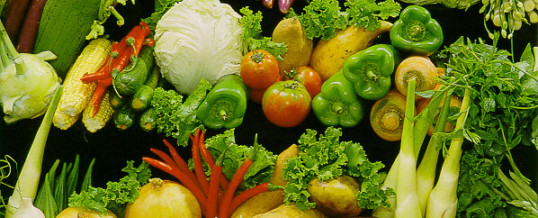
Farming leaders and politicians continue to send out dire warnings about future global food shortages and the need to develop strategies for national food security. Those messages conflict with the facts that Europe continues to waste half of all the food it produces, while countries around the world are diverting arable land from food production to growing crops for renewable energy.
For instance, the practice in the UK to generate electricity from straw will distort market forces in that essential commodity used for feeding to cattle and bedding all classes of livestock.
If biomass plants increase their intake of straw as a result of Government policies it will cause serious problems for the nation s livestock keepers.
Currently, 11 million tonnes of straw is produced annually in the UK from wheat, barley and other crops. Traditionally most was used for feed and bedding, while the rest was chopped and incorporated into the soil.
Many farmers (particularly pig farmers in England) have contracts where straw is given to them in exchange for farmyard manure which is used as a fertiliser.
If straw is baled and burned purely for energy purposes, finite essential plant nutrients, such as nitrogen and phosphorous will be lost from the agricultural cycle. That will force farmers to use more inorganic fertiliser, increasing their carbon footprint as a result, and decreasing, in turn, the green credentials of this so-called renewable energy source.
It s much the same in the distilling industry where there has been a move towards burning the by-product, distillers grains, on site as a source of heat for the distillers. Draff, the wet form of the mash left after distilling grain, has long been regarded as a relatively cheap form of protein feed for ruminants like cattle and sheep.
Mind you, the loss of those products will be more than made up by the distiller s grains created by the development of two English plants producing ethanol from wheat to incorporate into vehicle fuel.
The first plant, built on Teesside and with a potential annual intake of 1.2m tonnes of wheat, was temporarily mothballed last year after its first year of production.
Another one at Hull with a similar capacity is due to come on stream in the next two-three months. Between them they will be capable of using up the current exportable surplus from the UK s annual wheat harvest.
Those figures pale into insignificance when compared with the US s programme of encouraging the production of bio-ethanol from maize. Introduced in the latter years of the Bush administration, it now accounts for more than a third of that vast country s maize harvest, which is the biggest in the world. Indeed, that policy, coupled with the activity of speculators, has been the principal reason for the escalation in global grain prices in recent years.
President Bush s thinking behind this programme was probably along the lines that while oil can be produced in the desert, food can t be grown.
I can just imagine him telling his aides in the White House that turning maize into road fuel would save on oil imports, while at the same time making the Middle East pay more for grain.
Brazil is also a world leader in bio-ethanol production, in its case from sugar cane that is being grown on arable land that could also produce other crops.
Is it right that we use land to produce fuel for gas-guzzling vehicles instead of food at a time so many of the world s poor go to bed hungry?
The SNP policy of generating electricity from renewable energy sources such as the sun, hydro-electric schemes, wind, tides and waves is to be applauded as they have no impact on our food production capacity. Perhaps Donald Trump should consider that aspect before he opposes wind farms in Scotland.
Similarly, politicians should urgently address the dreadful situation across Europe where half of all the food we produce is wasted as a result of poor harvesting, transportation and storage techniques. Then there is the practice of supermarkets rejecting vegetables because they are slightly blemished or not the right shape or colour. Consumers could look at buying only what they need instead of throwing out good food because it is near or past its sell-by-date.
I firmly believe there should not be starvation in this world of plenty. It s simply a matter of wealthy
Source: World-Grain
MAR
2012


About the Author: